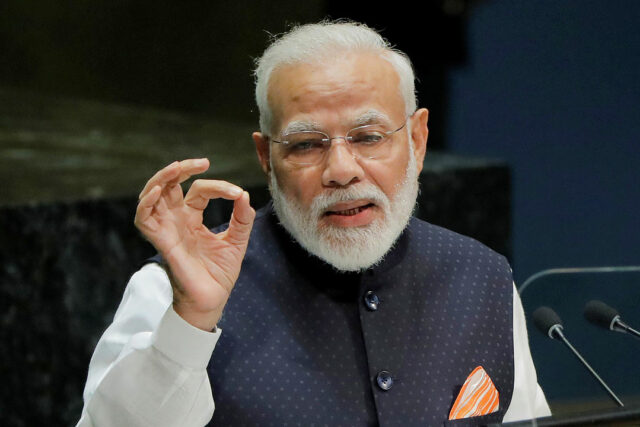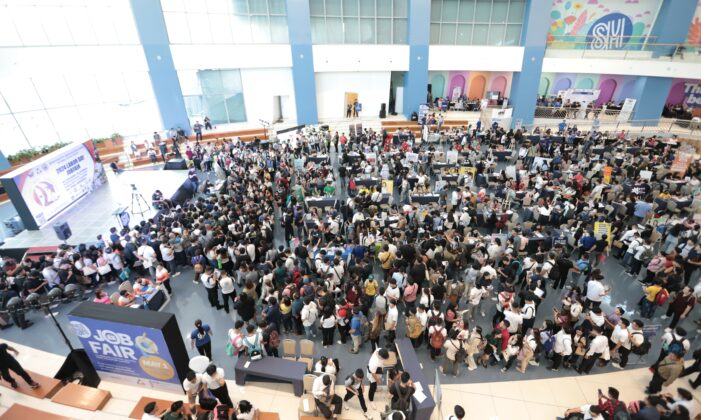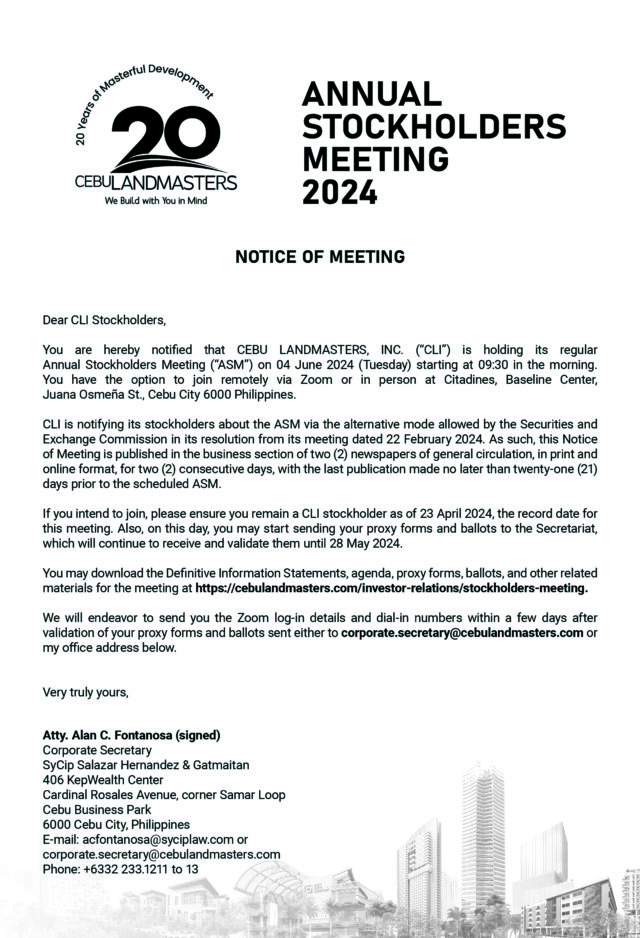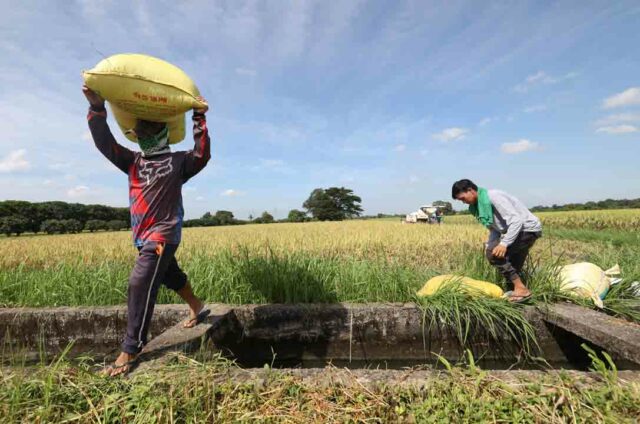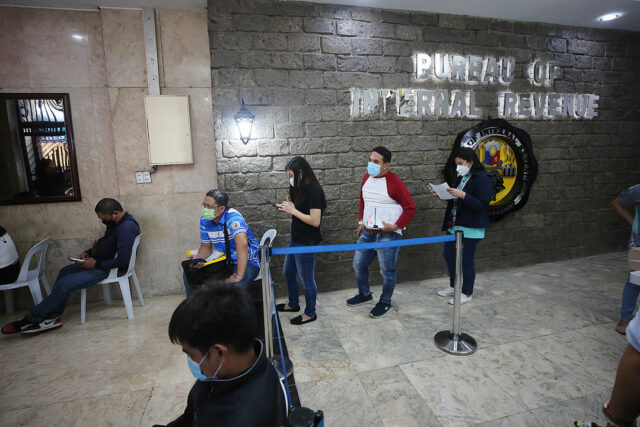Top PHL stakeholders to hold Realty Confab on May 16-17
The National Real Estate Association, Inc. (NREA), jointly with the Department of Human Settlements and Urban Development (DHSUD), will convene the country’s top real estate advocates and stakeholders for a two-day national convention.
Aimed at forging a comprehensive. multi-sectoral, multi-disciplinary initiative to boost housing and real estate development in the country, the convention will be held on May 16 and 17 at the Ayala Hall of Makati Sports Club, L.P. Leviste Street, Salcedo Village, Makati City.
Top billing the array of expert guest speakers are DHSUD Secretary Jose Rizalino Acuzar, who will be the guest of honor and keynote speaker Day 1; Senator Joseph Victor G. Ejercito, chairman of the Senate Committee on Urban Planning, Housing and Resettlement, as guest speaker afternoon of Day 1; Asst. Secretary Marvin Jason N. Bayang of the Office of the Special Assistant to the President for Investment and Economics, as guest speaker in the morning of Day 2 (May 17); and Senator Sherwin T. Gatchalian, chairman of the Senate Committee on Ways and Means, as guest speaker on the afternoon sessions on Day 2.
Ma. Loren B. Sales, NREA executive vice-president and convention chairlady, said that the convention is focused on the theme “NREA: Realizing the Dream of a Thriving Real Estate Industry”.
Red J. Rosales, NREA national president, announced that NREA, DHSUD, and the Department of Interior and Local Government (DILG) is set to sign during the convention a joint memorandum circular strengthening the three institutions’ partnership and operational cooperation behind the Pambansang Pabahay Para sa Pilipino Program (4PH) of President Ferdinand “Bongbong” R. Marcos, Jr.
To encourage the participation of the executives and representatives of local government units (LGUs) to the convention, the DILG has issued a memorandum circular to enable LGU leaders’ participation, on official time. LGUs serve as the main housing project proponents and implementors under 4PH, Mr. Rosales pointed out.
Consultant Imelda C. Magtoto, NREA chairperson, informed that participants will gain 12.5 credits in Continuing Professional Development (CPD) to comply with the license renewal of real estate brokers, appraisers and consultants while architect-participants will gain 3.5 CPD credits.
Ms. Magtoto also announced the convention topics and the invited speakers. These are: “Pasig River Rehabilitation and Other Updates,” with DHSUD Usec., Atty. Avelino Tolentino III; “Planado Project Program,” with DHSUD Usec. Henry Yap; “Vertical Housing Program and Policy Initiatives for 4PH,” with DHSUD Usec. Garry De Guzman; “Regional Development and LGU Process,” with DILG Sec. Benjamin Abalos, Jr.;
“Affordable Housing for OFWs,” with Congresswoman Marissa “Del Mar” Magsino; “Future of Communities: Smart Cities and Beyond,” with Architect Felino Palafox, Jr.; “Towards Sustainable Communities,” with DHSUD Dir. Ma. Lorina Rigor; “Innovations in Housing Technology,” with Engineer Christian Camacho of DoST-FPRDI; “Trends and Opportunities in Township Development,” with Andrew Tan, chairman and president of Megaworld Corp.;
“Investment Prospects and Incentives for Mass Housing,” with BOI-DTI Dir. Mary Ann Raganit; “Pag-IBIG: Digitalizing Home Financing and Other Program Updates,” with Pag-IBIG President and CEO Marilene Acosta; “Evolution and Future of Affordable Housing,” with Atty. Christopher Ryan Tan, OSHDP legal counsel and past president and Hausland Development Corp. president and current CEO; “The 7 Flagship Projects of Clark International Airport Corp. (CIAC),” with President & CEO Arrey Perez;
“Trends and Insights in Real Estate Marketing,” with Mariana Zobel De Ayala; “Tourism Boom and Tourist-Oriented Real Estate Development,” with DoT Sec. Ma. Esperanza Cristina Garcia Frasco; “Unlocking Potential: Updates on RPVAR Bill and Role in Shaping Property Valuation Practices,” with BLGF Dir. Ma. Pamela Quizon; “Professionalizing Real Estate,” with PRBRES Chairperson Ofelia Binag;
“Digitizing Land Registry and Updates,” with LRA Administrator Gerardo Sirios; “Ease of Paying Taxes and Other Updates,” with BIR Commissioner Romeo Lumaqui, Jr.; “ARTA: Business-Friendly PH and Other Anti-Red Tape Updates,” with ARTA Dir. Gen. Ernesto Perez; and “Land Access for Housing Through Conversion and Other Updates,” with DAR Usec., Atty. Luis Meinrado Pangulayan.
Sec. Gen. Loudette B. Carlos, convention vice-chair, said that invited panel discussion moderators are: Mr. Leonardo Dayao, SHDA Chairman; Engr. Marcelino Mendoza, NREA Adviser & OSHDP Chairman; DILG Dir. Anna Liza Bonagua; Ricky Celis, NREA Adviser & Past President; Alejandro Manalac, NREA Adviser & Past President/Chairman; Proptech Exec. Dir. AJ Rocero; SHDA Pres. Atty. Joy Manaog, Benigno Cabrieto, NREA Adviser & Past Pres./Chairman; and Paolo Giovanni Olivares, OSHDP President.
Another highlight of the convention is the launching of NREA Research Center (NRC) and of the NREA Youth Council (NYC). NRC will lead realty industry research initiatives; data gathering, studies and analyses, for actionable outputs. NYC, on the other hand, is a platform to harness youth leaders in housing and real estate.
Immediately preceding the convention, NREA will hold its annual Chairperson’s Golf Cup on May 15 at Wack Wack Golf and Country Club in Mandaluyong City, with prizes totaling to P300,000 in values.
The tournament will be chaired by Adviser Bansan C. Choa with Treasurer Nicole Choa and PRO Christian Mulingbayan as tournament vice chairmen.
Notably, the event is also a fund-raising activity to support NREA’s corporate social responsibility projects. It also promotes camaraderie among its members, colleagues and friends aims to achieve a “healthy mind and a healthy body.”
Golf registration fees are P8,500 each player, inclusive of green fees, golf cart use, food, and a chance to win big raffle prizes. Meanwhile, convention registration fees are P3,000 for both NREA members and non-members.
Both events are supported by: PHirst Park Homes, Inc.; Pag-IBIG Fund; Davies Paint Philippines, Inc.; Merrytown Properties Corp.; Pocket Communities; Emerald Vinyl Corp.; Prime Homes Realty & Development Corp.; National Home Mortgage Finance Corp.; Mapecon Philippines, Inc.; Oak Drive Capital, Inc.; Union Cement Philippines; Central Country Estates, Inc./The Lakeshore; AIDEA, Inc.; Phinma Properties, Inc.; Megaworld Corp.; Duraville Realty & Development Corp.; Hausland Development Corp./Fiesta Communities; SM Development Corp.; E. Ganzon, Inc.; A. Brown Company, Inc.; Golden Haven Memorial Parks; and the Department of Tourism.
For registration and other particulars, you may contact the NREA Secretariat at mobile/Viber nos. 0927-9231113 (Exec. Asst. & Event Officer Lhane Sta. Juana); 0965-5392012 (Aileen Garlitos); 0917-6374961 (Iya Angeles); or email us at nrea_org@gyahoo.com.
Spotlight is BusinessWorld’s sponsored section that allows advertisers to amplify their brand and connect with BusinessWorld’s audience by publishing their stories on the BusinessWorld Web site. For more information, send an email to online@bworldonline.com.
Join us on Viber at https://bit.ly/3hv6bLA to get more updates and subscribe to BusinessWorld’s titles and get exclusive content through www.bworld-x.com.




